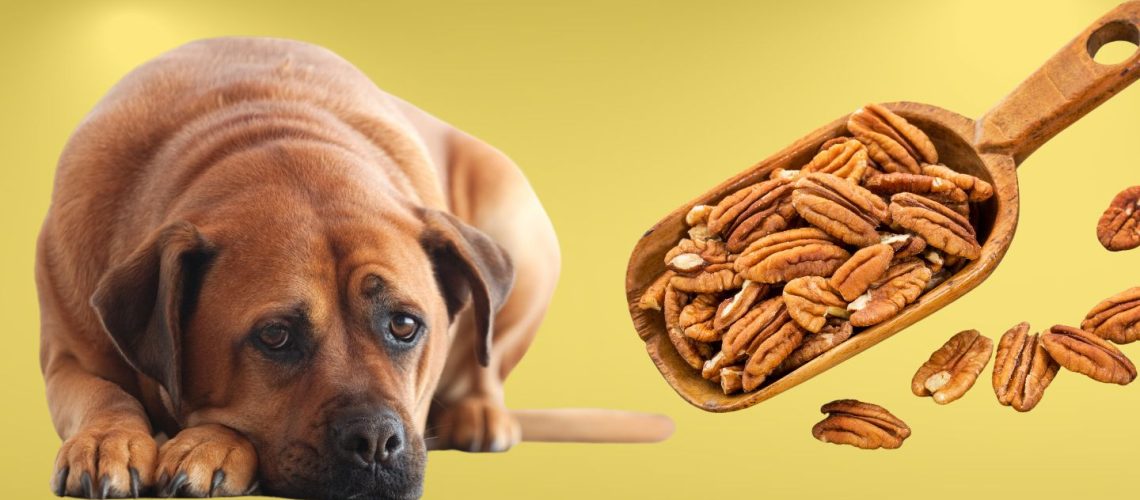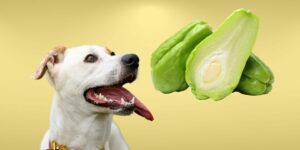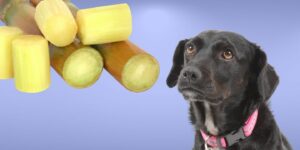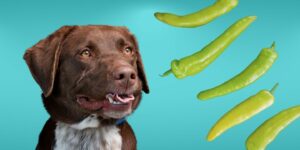The short answer to the question "Can dogs eat pecans?" is no, dogs should not eat pecans. Pecans are toxic to dogs and, in addition to this, pose several other dangers, like molds, high-fat content, and choking. It is crucial for dog owners to understand what their pets can and cannot eat, as this knowledge will help keep their furry friends healthy and happy. In this article, we will discuss the various reasons why pecans are harmful to dogs and what you can do to prevent any accidental ingestion of these nuts.
Why Are Pecans Dangerous for Dogs?
Pecans and Their Toxicity to Dogs
First of all, pecans are toxic to dogs as they contain a chemical compound called juglone. In dogs, juglone triggers digestive problems like vomiting and diarrhea. The symptoms of juglone poisoning in dogs include weakness, lethargy, drooling, and loss of appetite.
Mold Growth in Pecans
Second, pecans are susceptible to mold growth due to their high moisture and fat content. These molds produce mycotoxins which are hazardous to dogs and, in severe cases, may even cause organ damage and failure. Symptoms of mycotoxin poisoning in dogs include muscle tremors, seizures, increased heart rate, and difficulty breathing.
High Fat Content of Pecans
Third, pecans are high in fat and may cause pancreatitis. Pancreatitis is inflammation of the pancreas, and in addition to being painful, if left untreated, it can be life-threatening. The role of fat in a dog's diet is essential, but excessive fat consumption can lead to health issues. Symptoms of pancreatitis in dogs include vomiting, fever, abdominal pain, and a hunched posture.
Choking Hazards and Intestinal Blockages
Last but not least, pecans pose a choking hazard, and their hard shell can cause intestinal blockage if swallowed whole. The size and shape of pecans can easily become lodged in a dog's throat, leading to choking or difficulty breathing. Intestinal blockages are also dangerous and may require surgical intervention. Signs of choking or blockage in dogs include gagging, drooling, pawing at the mouth, and distress.
How Can You Keep Pecans Away From Your Dog?
Preventative Measures
To prevent your dog from accidentally eating pecans, make sure to keep them out of your dog's reach. Always store pecans in a sealed container in the refrigerator or pantry. Additionally, make sure to properly dispose of any pecan shells to prevent your dog from finding and eating them. Finally, keep in mind that pecans can be found in certain foods like pies and pastries.
Alternatives to Pecans for Dogs
Some safe nuts and seeds for dogs to enjoy include peanuts, sunflower seeds, and pumpkin seeds. However, these should be given in moderation due to their high fat content. Healthy treat options for dogs include fruits, vegetables, and lean proteins.
What Should You Do If Your Dog Eats Pecans?
If your dog accidentally eats pecans, monitor them closely for any signs of gastrointestinal upset, poisoning, or blockage. If they start vomiting or experiencing diarrhea, or if they seem uncomfortable or in pain, contact your veterinarian or nearest emergency clinic. Dogs that ate a pecan or two are unlikely to experience issues, but dogs that consumed a more significant amount need veterinary attention. Possible treatments for dogs that have ingested pecans include fluid therapy, medications to control symptoms, and surgery for blockages.
In Conclusion
In conclusion, dogs should not eat pecans. Pecans are dangerous to dogs on several levels and can cause toxicity, organ damage, pancreatitis, choking, and intestinal blockage. If your dog accidentally eats pecans, monitor them closely and contact your vet if they show any signs of illness. To prevent your dog from accidentally eating pecans, keep them out of reach, and provide them with healthy, safe alternatives to snack on. Doing so will help ensure the health and safety of your beloved pet.











